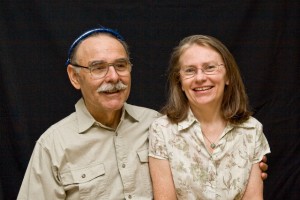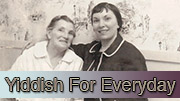
Rabbi Moshe ben Asher, Ph.D.
& Magidah Khulda bat Sarah
Most of us, if we think of ourselves as Jews, inevitably ask this question: What accounts for the phenomenal survival and success of the Jewish people?
[whohit]Filling the Hands of Leaders[/whohit]
By all logic we should have disappeared long ago, as did dozens of other ancient civilizations and nations. The Greeks and Romans, with all their glory, are long gone. And yet we’re still here, even after the Holocaust – renewed as a nation in our own land.
By all logic we should have had no more impact on the world than, say, the Albanians or Zimbawbweans. And yet, the contributions of the Jewish people are so massively out of proportion to our numbers that, although numerically miniscule, we are counted among the great peoples of the world.
So what accounts for our extraordinary survival and success?
The simple answer, of course, is that we were offered and chose to accept the Torah at Mount Sinai some 3300 years ago. Even the children in our religious school classes have understood that had we not inherited the Torah, things would not be as they are for the Jewish people.
Imagine that a thousand years ago our people decided they had to “go along to get along” with the Christians, so they jettisoned the Torah. Had they done so, there would be nothing uniquely Jewish about us; the Jewish people would have become assimilated long ago. And yet this doesn’t fully explain our survival and success.
This explanation is not sufficient because, while the legacy of Torah was bequeathed to every generation, the Torah need not have been taken up by every generation. Although the potential benefits of accepting the legacy were certainly great, the prospective burdens were daunting – as we know personally if we have carried the Torah in our own lives.
So how can we understand the quality of leadership that emerged in every generation, and that willingly – even enthusiastically – carried the Torah and passed it on to the next generation?
In Exodus 28:41, we read that the kohanim, the priests, were to be ordained to the service of God. To be sure, the priests were not magicians or purveyors of mystical mumbo-jumbo. They were leaders of the people – the bearers and teachers of Torah – who modeled the requirements for national survival and success.
So what does it mean that they were ordained at their installation?
The Hebrew reads umileitah et-yadam – “you will fill their hands.”
The Sforno, one of the great commentators of the medieval period, tells us that “to fill their hands” means that in elevating them to leadership, those who install them have a special responsibility. We the people must, in effect, “Perfect them in a way that they be complete and worthy to serve (in the) sacred service.”
In other words, we are responsible to ensure that the leaders we commission to act in our name are “complete and worthy” to serve this generation in maintaining the continuity of our people’s history. Their worthiness is not established once and for all time, but rather it requires a day-to-day struggle on their part, encouraged and aided by our continuing support and our willingness to hold them accountable. So we have a sacred duty as well.
While it is our duty to “fill their hands” – in effect, dedicating them to their mission, so that they may be worthy of the trust we place in them – for their part they must accept not only our mundane commission, the formal office to which we elect or appoint them, but the divine charge as well.
Rabbi Chaim ben Attar taught that the leaders who are named must be “affected emotionally by this [installation] procedure so that they…become recipients of God’s kindness, known as ‘His great Hand’.” To accept the hand of God means that one holds fast to the Torah so as to keep on the right path of life.
What then, in the final analysis, is required for the generation-to-generation survival and success of the Jewish people?
We must be willing to fill the hands of our leaders by supporting them and holding them accountable. And they must be willing to accept the hand of God by holding fast to the Torah.
But, of course, since every Jew has an obligation to contribute some leadership at some time or another, “we” and “they” is all of us.
Rabbi Moshe ben Asher and Magidah Khulda bat Sarah are the Co-Directors of Gather the People, a nonprofit organization that provides Internet-based resources for congregational community organizing and development (http://www.gatherthepeople.org). © 2014 Moshe ben Asher & Khulda bat Sarah






